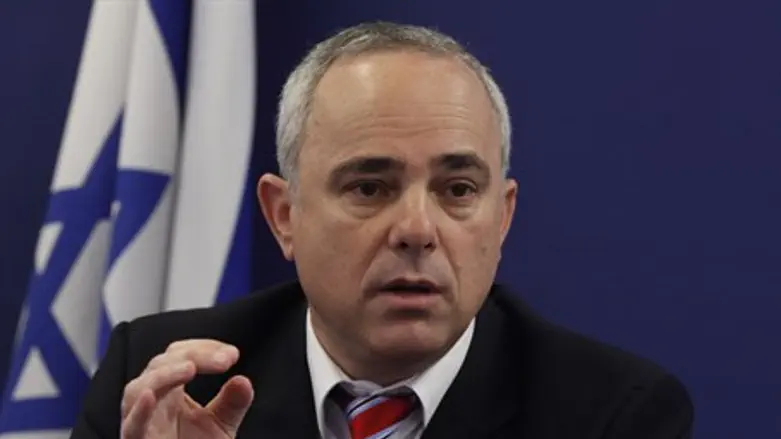
Israel's Minister for Intelligence and Strategic Affairs, Yuval Steinitz, had a sharp warning for Syria on Monday: Don't try Israel's patience, lest Israel be forced to respond and further jeopardize the rule of Bashar al-Assad.
“Israel does not want to intervene in Syria. Do not harass us and do not force us,” Steinitz said Monday at a press conference, virtually addressing Syria's leaders. “Anyone who thinks they can conduct a war of attrition against Israel needs to think again,” he said.
Fighting between Syrian rebels and soldiers loyal to Syrian President Bashar Al-Assad has “spilled over” into Israel in recent weeks. Numerous shells and bullets fired from Syria have hit Israeli targets in the Golan. The IDF believes that the mortars and bullets were “strays,” the result of the all out war and wild fighting going on between rebels and Syrian soldiers.
Syrian President Assad has several times threatened to attack Israel if the latter intervenes in Syria. Several months ago, an unknown party – possibly Israel – bombed a convoy of trucks that were said to be carrying advanced weapons to Hizbullah terrorists in Lebanon. Israel has not confirmed its role in that attack. Steinitz said that Syria was receiving help from Iran, and passing it on to Hamas and Hizbullah, and that this was unacceptable.
Assad, Steinitz added, might just survive this war intact. “At this point, the opposition is unable to advance to its goals, and Assad's government still survives, and is even thriving in some ways, with strong support from Iran and Hizbullah. With this help, Assad is likely to win the war and continue to rule.”
Last week, fighting between rebel forces and Syrian soldiers reached the Israeli-Syrian border, when Syrian rebels briefly captured the area of the Kuneitra crossing between Israel and Syria. The rebel forces on the Syrian side of the Golan Heights are said to belong to the Jabhat al-Nusra group closely identified with Al Qaeda.
According to reports, UN peacekeeping troops abandoned their posts as the fighting got closer to their bases. The clashes prompted Austria to announce it would withdraw its 377 troops from the UN Disengagement Observer Force, which is headquartered at Kuneitra. Steinitz said it was crucial the UN force, which was established to monitor the 1974 ceasefire agreement, be kept in place. "It is very important to keep the demilitarisation and ceasefire elements of previous agreements between the two sides and we demand that those agreements be fulfilled," he told reporters, saying it was unclear whether the Austrian troops would be replaced.
"It is frustrating that such forces are there when it is quiet, but when suddenly there is a real danger of some engagement, they are leaving. I don't blame anybody, but this is another example of why we never rest our national security on the presence of international forces,” Steinitz added.